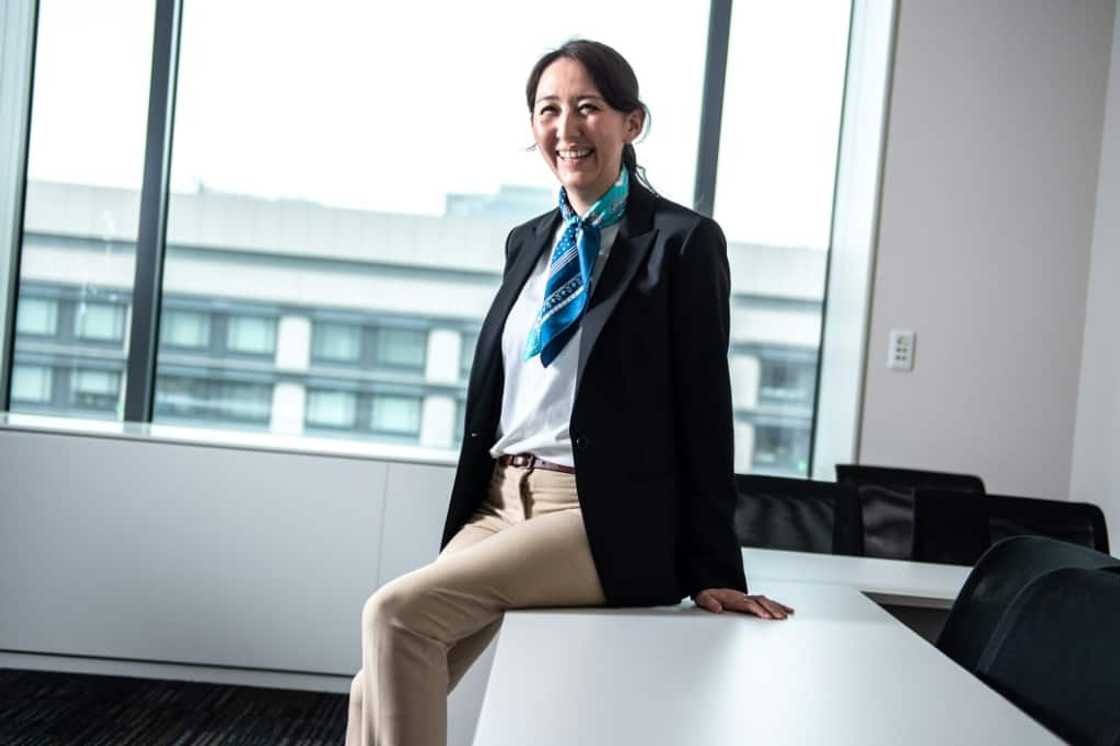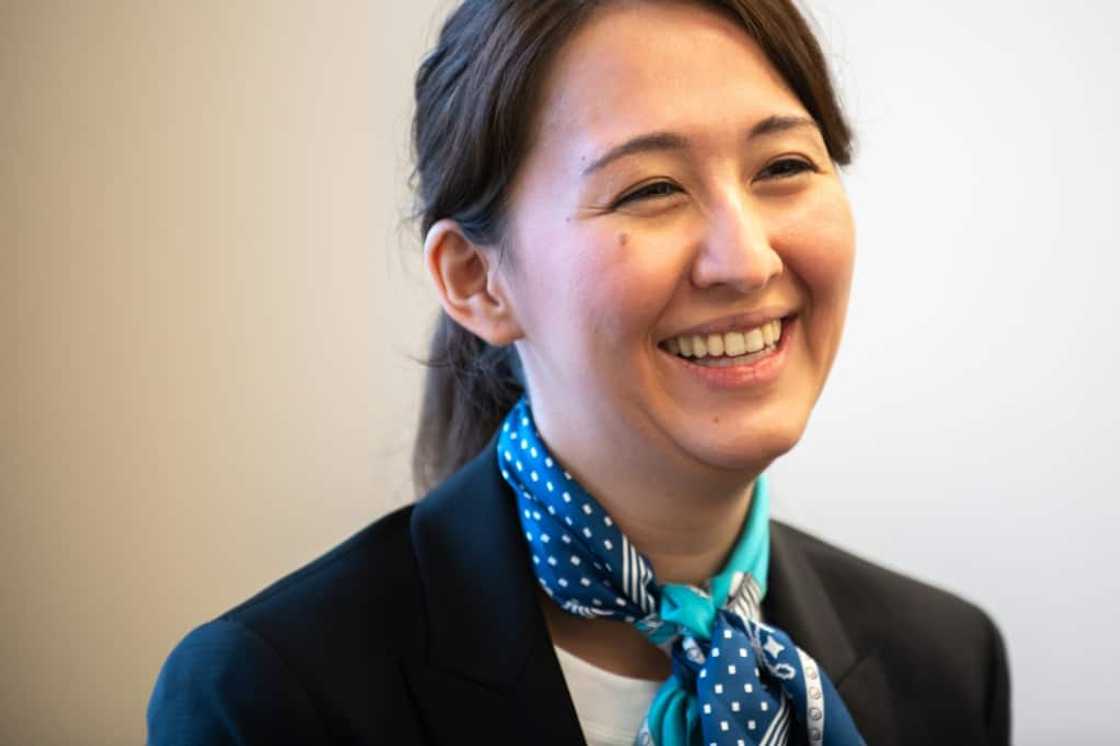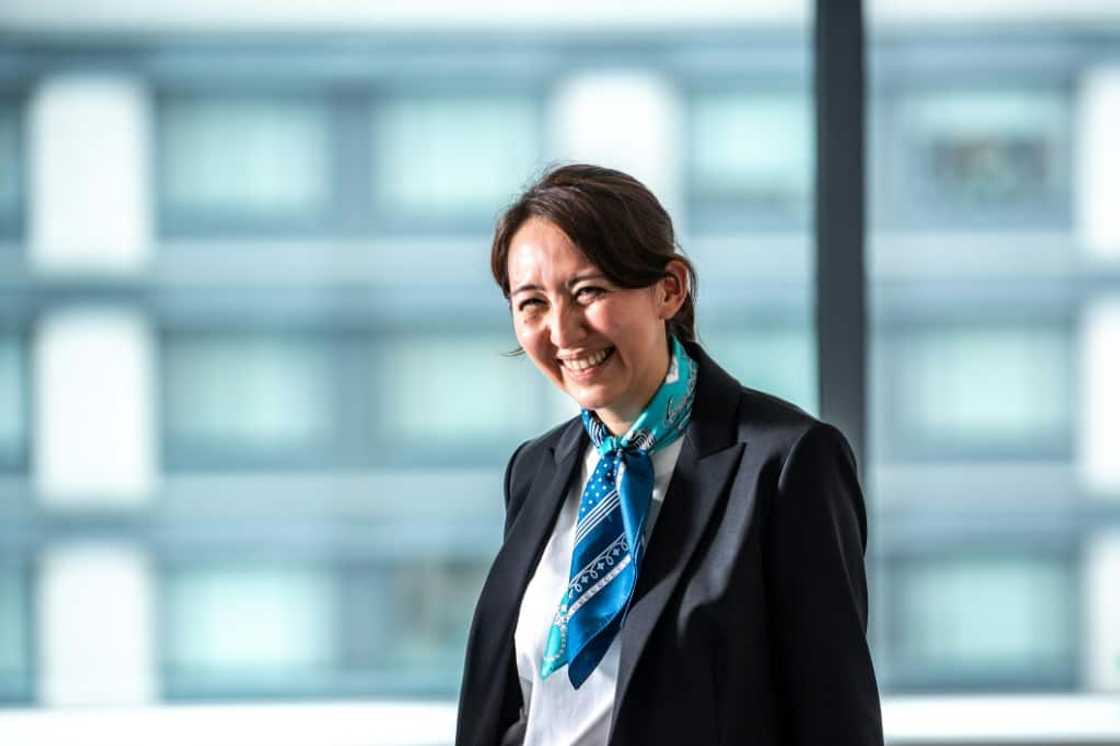Uyghur-heritage candidate urges Japan to 'embrace diversity'

Source: AFP
PAY ATTENTION: Follow Briefly News on Twitter and never miss the hottest topics! Find us at @brieflyza!
Arfiya Eri is a young, female, multilingual former United Nations official, all of which would already help her stand out as a Japanese political candidate, but she is also of Uyghur heritage.
While her campaign is not centred around her ethnic background, it is attracting attention -- positive and negative -- in a country where politics is still a largely homogenous affair.
Ethnic Uyghurs generally hail from China's Xinjiang province, where the government is accused of detaining more than one million of them and other Muslim minorities in a years-long crackdown that rights groups say includes widespread "crimes against humanity".
Eri, 33, is running for parliament's upper house with the ruling Liberal Democratic Party, on a platform that emphasises bread-and-butter issues and her identity as a proud Japanese citizen.
As the first person of Uyghur origin to run as a major party candidate in Japan, Eri acknowledges her campaign is viewed by some through the prism of her family history.
"Instead of my vision and policies as a Japanese politician, people ask me about the Uyghur issue because of my ethnic background," she told AFP.
PAY ATTENTION: Never miss breaking news – join Briefly News' Telegram channel!
"I can understand why this happens, but it feels a bit strange."
That does not mean, however, that diversity is not a concern for a woman who speaks seven languages and was educated between Japan, China and the United States.

Source: AFP
In fact, it helped inspire her to run, after she watched an election in her native Fukuoka region in southern Japan and observed the uniformity of the candidates.
"I see more and more people like myself visibly represented in Japan, with names that are not traditionally Japanese," said Eri, whose family name is sometimes mistaken for her first name.
"Women are also more visibly active and successful... But when you look at the world of politics, that diversity is still not being represented, it's not reflected."
'Unspeakable oppression'
Japan's July 10 election will see more than 500 candidates running for half of the 248-seat upper house, known as the House of Councillors.
The LDP is expected to win, though Eri's chances will be partly dictated by where she is eventually placed on the party list.
She plans to campaign for better work-life balance, gender equality and amending the pacifist constitution, which bars the use of force to settle international disputes and is interpreted by some as prohibiting the country from having any military force.
Eri endorses the LDP's mainstream conservative politics, and insists Japan must "stand firm on our national security".
Eri also declines to use the name Xinjiang for China's Uyghur-majority region, and said her familiarity with alleged human rights abuses has shaped her views.
The candidate described "human rights violations at an unspeakable scale in places like the Uyghur region", and said she believes even a minor rights violation "opens the door" to worse abuses.
Diversity 'vital'
Eri's family moved from Japan to China when she was a teenager, after her father, an engineer, was transferred by his employer.
She graduated from an American international school before studying in the United States, and joined the United Nations in 2016 after a stint at the Bank of Japan.
Her international resume sets her apart from many election candidates, but "rather than my actual experiences and expertise or who I really am, my background has drawn more attention".

Source: AFP
Much of that has been positive, but there has also been online vitriol questioning Eri's identity, her trustworthiness and even her patriotism.
Candidates like Eri have little to gain from putting their diversity front and centre in mostly mono-ethnic Japan, said Tomoaki Iwai, professor emeritus of Japanese politics at Nihon University.
They "can face an adverse voter reaction if they push their ethnicity too much", he told AFP.
Things are beginning to change, Iwai said, particularly in urban areas, but the pace is gradual.
Eri said Japan must "build a country that embraces diversity", though she admitted there is a long way to go, including in the LDP.
"I believe that this is vital for the future of Japan," she said.
PAY ATTENTION: check out news exactly for YOU ➡️ find "Recommended for you" block and enjoy!
Source: AFP





